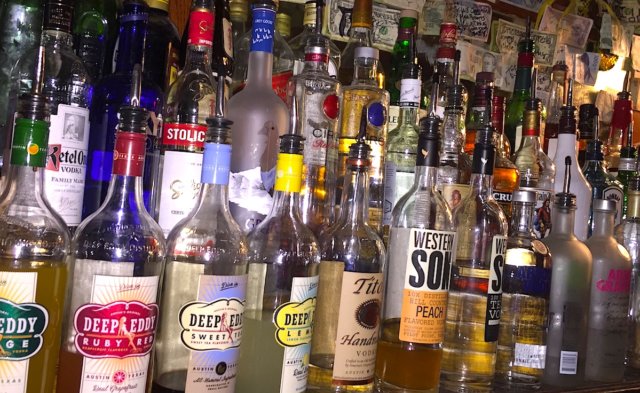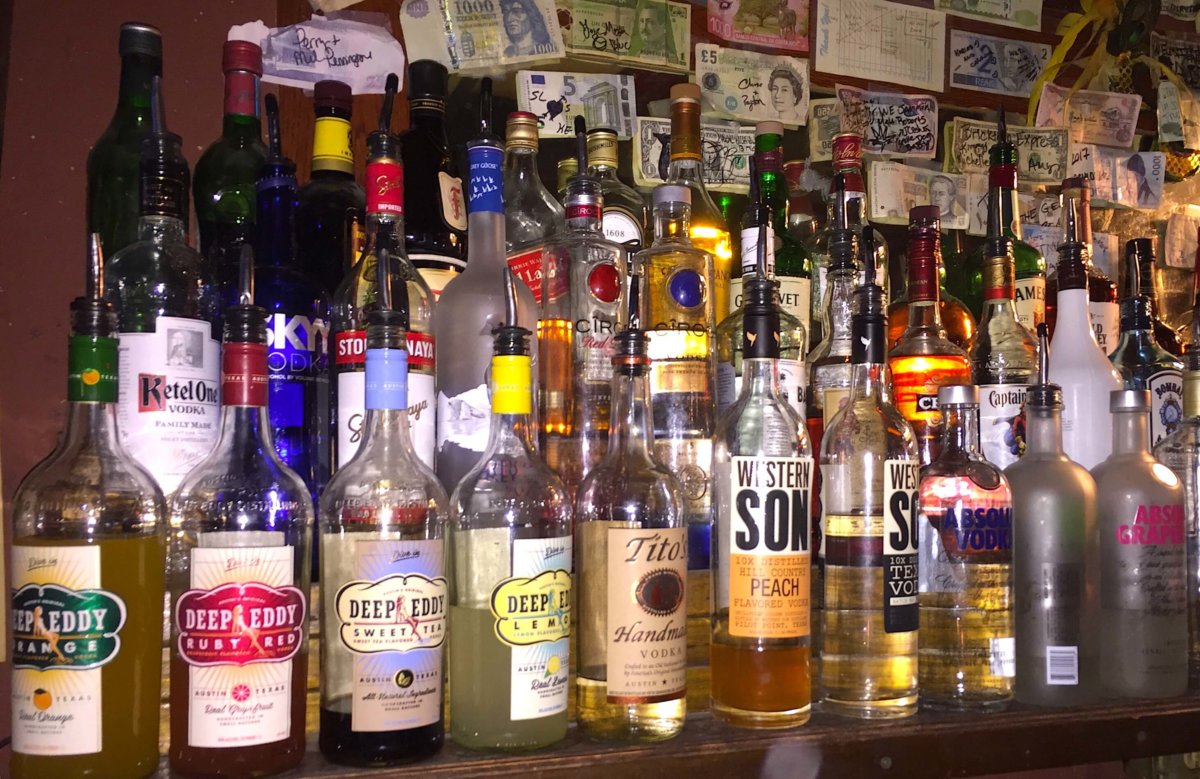

The Oklahoma Legislature’s controversial liquor bicker came to a head this afternoon, with the State Senate sending SB 608 to Gov. Kevin Stitt. If signed, the bill would require manufacturers of the top 25 wine and spirit brands to sell their products to any state-licensed wholesaler, a measure primarily sought by Bryan Hendershot of Boardwalk Distribution and the Retail Liquor Association of Oklahoma.
“There are probably grounds for this to end up in the courts. It probably should, and if this gets it there, great. But our retailers need some relief,” said Senate Majority Floor Leader Kim David (R-Porter) who carried the bill. “We have a duopoly in this state right now, and if we’re fine with that then we are fine with that.”
The Senate, apparently, was not fine with the distribution model that left liquor stores and bars with only one distributor choice for top brands, voting 34-11 to approve SB 608. The bill had been amended in the House by Rep. Chris Kannady (R-OKC), and Monday’s only debate on the issue came during the motion to accept the House amendment.
“My first year in the Legislature, I took on the daunting task of trying to update Oklahoma’s alcohol laws. This process did not happen overnight. This process, in fact, took almost two years of intense negotiation among many parties: wholesalers, retailers, grocery stores, convenience stores and manufacturers of alcohol,” said Sen. Stephanie Bice (R-OKC). “As with any significant change in law, it takes time. There are disruptions to the system. There are tweaks that have to be made. But to upend a system that has just been upended six months ago is, I think, misguided and not well thought out.”
Bice debated against adoption House amendments to SB 608 for more than seven minutes, saying State Question 792‘s passage in 2016 was “monumental for Oklahoma” and that the Retail Liquor Association opposed it.
“Many of the changes in SQ 792 were a direct result of legislation passed in 1959, which is when Oklahoma repealed prohibition,” Bice said, noting that under those laws liquor manufacturers lacked the ability to enforce quality control standards on distributors. “They were forced to sell to everyone.”
David followed Bice in debate, explaining her support for requiring manufacturers to sell to any licensed wholesaler willing to serve the whole state.
“Those two big wholesalers now represent 90 percent of the business, and apparently that’s supposed to be OK for everybody else,” David said, referring to Central Liquor Company and Jarboe Sales, which struck deals with national companies Republic National Distributing Company (RNDC) and Southern Glazer’s Wine and Spirits, respectively.
Manufacturers: ‘We’re going to appeal to the governor’
Bryan Kerr of the Retail Liquor Association previously told NonDoc that most of his organization’s members are not “fine” with the distribution changes implemented in recent months.
“These people who have exclusive rights to these spirits and these wines have continued to slowly decrease service and slowly increase price,” said Kerr, owner of Moore Liquor. “The sharpest part of that knife pokes at the rural areas where they have really seen severely reduced service and availability of product since the passage of the law.”
RELATED
Duopoly or pro-business? Shots taken in liquor distribution fight by Tres Savage
But Dale Szyndrowski, vice president for government relations for the Distilled Spirits Council, said SB 608 will not help liquor stores compete with grocery stores, which can now sell cold wine and beer.
“Sen. David was absolutely wrong in her belief that this bill was somehow going to help small Oklahoma retailers,” Szyndrowski said. “SB “608 was totally designed for one or two wholesalers who didn’t do their due diligence and should have invested in their business instead of the Legislature.
Szyndrowski said he was disappointed the Senate did not send the bill through a committee after it was amended in the House, and he said his organization will be asking Stitt to veto SB 608.
“We’re going to appeal to the governor [to veto] a bill that was this highly contested,” he said.
Szyndrowski suggested that if the Legislature “truly wanted to help small retailers” they could pursue legislation similar to Colorado so that a larger grocer would be required to buy out any liquor stores within a certain distance before obtaining a new license.
A call and text message to Hendershot were not returned by the publication of this story. A representative from a separate liquor distributor declined to comment.
Treat: ‘The sides are uncompromising in their positions’
Prior to SB 608’s hearing, Senate President Pro Tempore Greg Treat (R-OKC) said he gathered the competing interests in the ongoing liquor bicker around his conference room table last week.
“It was very obvious in the meeting that no one was going to bend an inch,” Treat said. “The sides are uncompromising in their positions, and I truly feel like this is going to litigation sometime soon because the interpretation of the Constitution and the attorney general’s opinion could not be more diametrically opposed.”
John Maisch, president of the Institute for Responsible Alcohol Policy, sent a statement Monday afternoon noting the same constitutional question.
“The Senate passed an unconstitutional bill when it approved Senate Bill 608 this afternoon. The Oklahoma Constitution expressly states that suppliers may use all wholesalers or may choose to designate certain wholesaler to distribute their products,” Maisch said. “Attorney General Opinion 2018-06 already addressed this issue on June 26, 2018. Senate Bill 608 violates that constitutional right by requiring suppliers to distribute certain products through all wholesalers. If signed by the Governor Stitt, Senate Bill 608 will get overturned in the courts.”
Kannady has said he believes the existing language allowing single-source distribution contracts already violates multiple sections of the constitution addressing “monopolies.”
Treat ultimately voted in favor of the bill.
“My opinion on the state question is that Oklahoma voters voted for cold beer and wine in grocery stores,” he said. “The distribution model wasn’t something that people got ginned up on and were really wed to one distribution model or another.”
(Update: This story was updated at 4:50 p.m. to include comment from Maisch.)





















